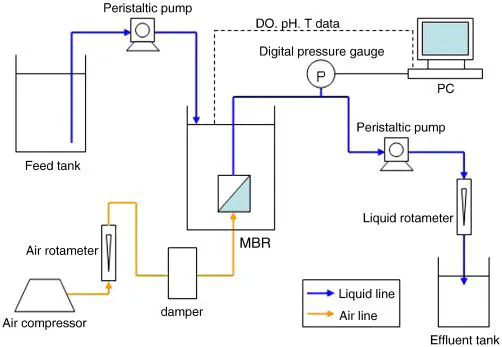Identification of the change of soluble microbial products on membrane fouling in membrane bioreactor (MBR)

Abstract
Comprehensive fouling propensity associated with the change of soluble microbial products (SMP), especially the concentration of SMP and the ratio of protein to polysaccharide (PN/PS) has been investigated in a lab-scale submerged microfiltration MBR. Results showed that the higher ratio of PN/PS induced less irreversible fouling and improved the interaction of protein and polysaccharide to form cake layer. The rejection efficiency of major components in SMP also increased with higher PN/PS ratios. Fouling mechanisms altered from combination of intermediate pore blocking and cake formation at initial stage to cake formation on the membrane surface during long-term operation. Moreover, the irreversible fouling resistance was found to be proportional to the concentration of SMP. Lower concentration of SMP and higher PN/PS ratio should be an effective strategy in releasing membrane fouling.
Type
Publication
Desalination